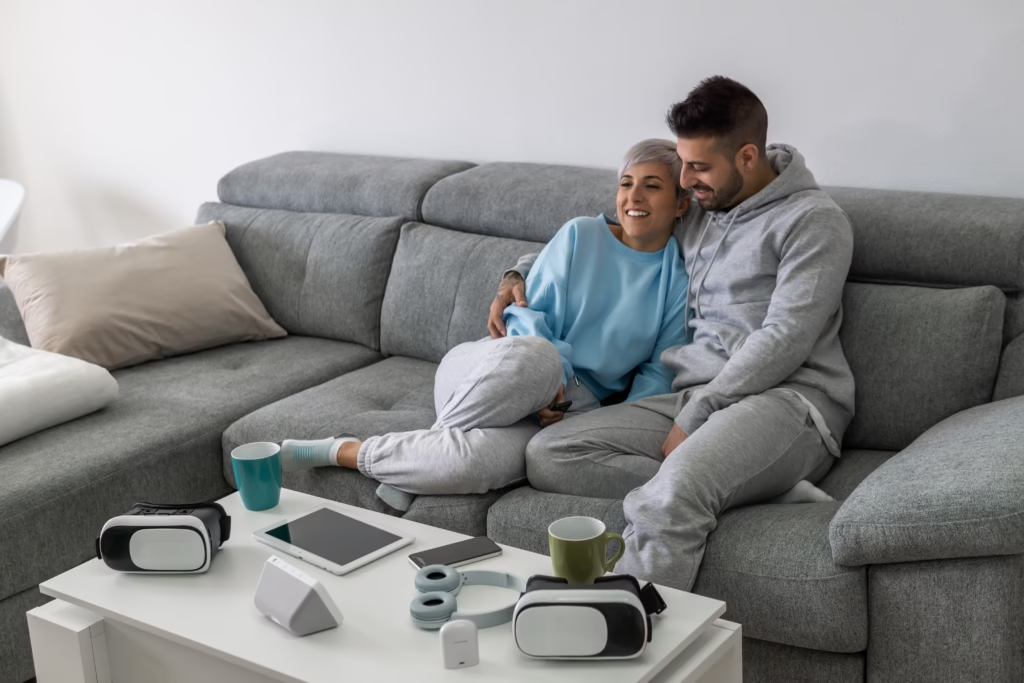Smart Home Ecosystems Explained
Smart home technology is no longer a futuristic concept; it’s an everyday reality for millions of households around the world. From voice-controlled lighting to AI-powered thermostats, the connected home continues to evolve at a rapid pace. But with so many platforms available, how do you choose the right ecosystem for your needs?
This comprehensive guide will break down the top smart home ecosystems Apple HomeKit, Google Home, and Amazon Alexa—to help you make an informed decision. Whether you’re new to smart homes or looking to expand your current setup, this guide has you covered.
Table of Contents
What Is a Smart Home Ecosystem?
A smart home ecosystem is a network of devices, applications, and services that work together to automate and enhance your living space. These platforms connect everything from lights and thermostats to doorbells and security cameras into a unified, user-friendly system. The main goal is convenience, efficiency, and improved lifestyle through connectivity.
Top Smart Home Platforms in 2025
The smart home landscape is dominated by three major players, each offering unique features and compatibility:
- Apple HomeKit: Known for its emphasis on privacy and seamless integration with Apple devices.
- Google Home: Offers powerful voice control via Google Assistant and deep integration with Android and Google services.
- Amazon Alexa: The most widely adopted ecosystem with a large catalog of compatible devices and skills.
Each of these platforms acts as a “command center” for your smart home. To dive deeper, learn more about Apple HomeKit vs. Google Home vs. Amazon Alexa.
Google Home vs Alexa vs Apple HomeKit
Voice Assistant Capabilities
Alexa shines with custom “skills,” while Google Assistant excels in conversational responses. Siri on HomeKit is tightly integrated with Apple devices and prioritizes privacy.
Device Compatibility
Amazon leads with broad device support. Google follows closely, while Apple HomeKit, although more selective, ensures stringent security standards.
User Experience
Google Home and Alexa are platform-agnostic. HomeKit works best for Apple-centric households.
Pricing
Amazon and Google typically offer more affordable options, while Apple tends to cater to a premium segment.
Benefits of Using a Smart Home Platform
- Centralized control over lighting, security, and temperature
- Improved energy efficiency and cost savings
- Convenience through automation (e.g., routines and scenes)
- Enhanced home security with real-time alerts and video monitoring
By choosing the right smart home ecosystem, you ensure all devices work harmoniously and securely.
How to Choose the Right Smart Home Ecosystem
- Evaluate your existing devices: Are you an iPhone or Android user?
- Set your priorities: Is privacy, automation, or compatibility more important?
- Consider scalability: Will your platform allow future expansion?
Still unsure? Check out the Top 5 Essential Smart Home Gadgets for Beginners in 2025 to help you start building your setup.
Smart Home Hubs and Interoperability
Smart home hubs act as mediators between devices, often improving performance and expanding compatibility. Some popular options include:
- Amazon Echo: Built-in Alexa hub and speaker
- Google Nest Hub: Visual interface with Assistant integration
- Apple HomePod Mini: Siri-powered, HomeKit controller
The new Matter protocol is pushing boundaries by improving cross-platform interoperability. Devices that support Matter work with all major platforms, including Apple, Google, and Amazon ecosystems.
Security and Privacy Considerations
Connected homes require connected thinking about privacy. Consider the following:
- End-to-End Encryption: Prioritized by Apple and now adopted by others.
- Data Handling: Review privacy policies of each ecosystem.
- Device Updates: Choose brands known for long-term support and security patches.
Future Trends in Smart Home Technology
- AI Integration: Predictive automation based on behavior patterns
- Sustainability: Eco-friendly energy monitoring and consumption control
- Universal Standards: Matter and Thread are redefining compatibility
Expect homes in 2025 and beyond to be smarter, greener, and more user-focused.
Frequently Asked Questions
1. What is the best smart home platform for iPhone users?
Apple HomeKit is ideal for iPhone users due to seamless integration and top-tier privacy standards.
2. Can I mix and match devices from different platforms?
Yes, especially if they support Matter or work through hubs like Alexa or Google Home.
3. Is Google Home better than Alexa?
It depends. Google Assistant is more conversational, while Alexa offers more third-party integrations.
4. Are smart homes safe from hackers?
With secure networks and regular device updates, risks are minimized. Choose platforms with strong encryption and privacy controls.
5. Do I need a hub for my smart home?
Not always, but hubs can enhance compatibility and performance, especially for complex automation.
Conclusion
Choosing the right smart home ecosystem depends on your preferences, existing devices, and priorities. Apple HomeKit excels in privacy and Apple integration, Google Home offers powerful Assistant features, and Amazon Alexa provides extensive device compatibility.
By aligning your platform choice with your lifestyle goals, you’ll set up a connected home that’s intuitive, efficient, and future-ready.


